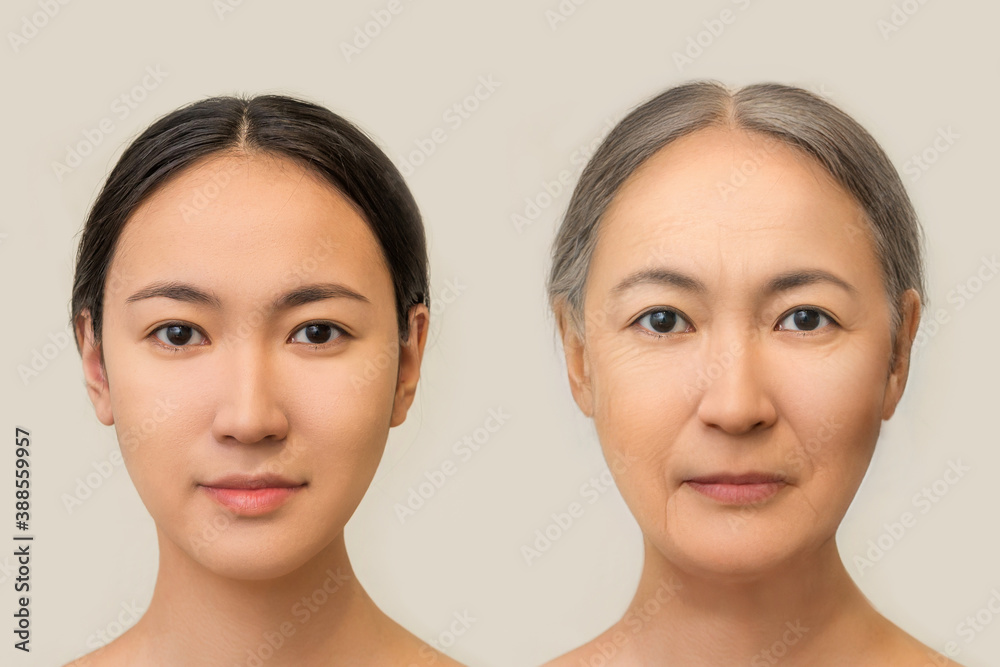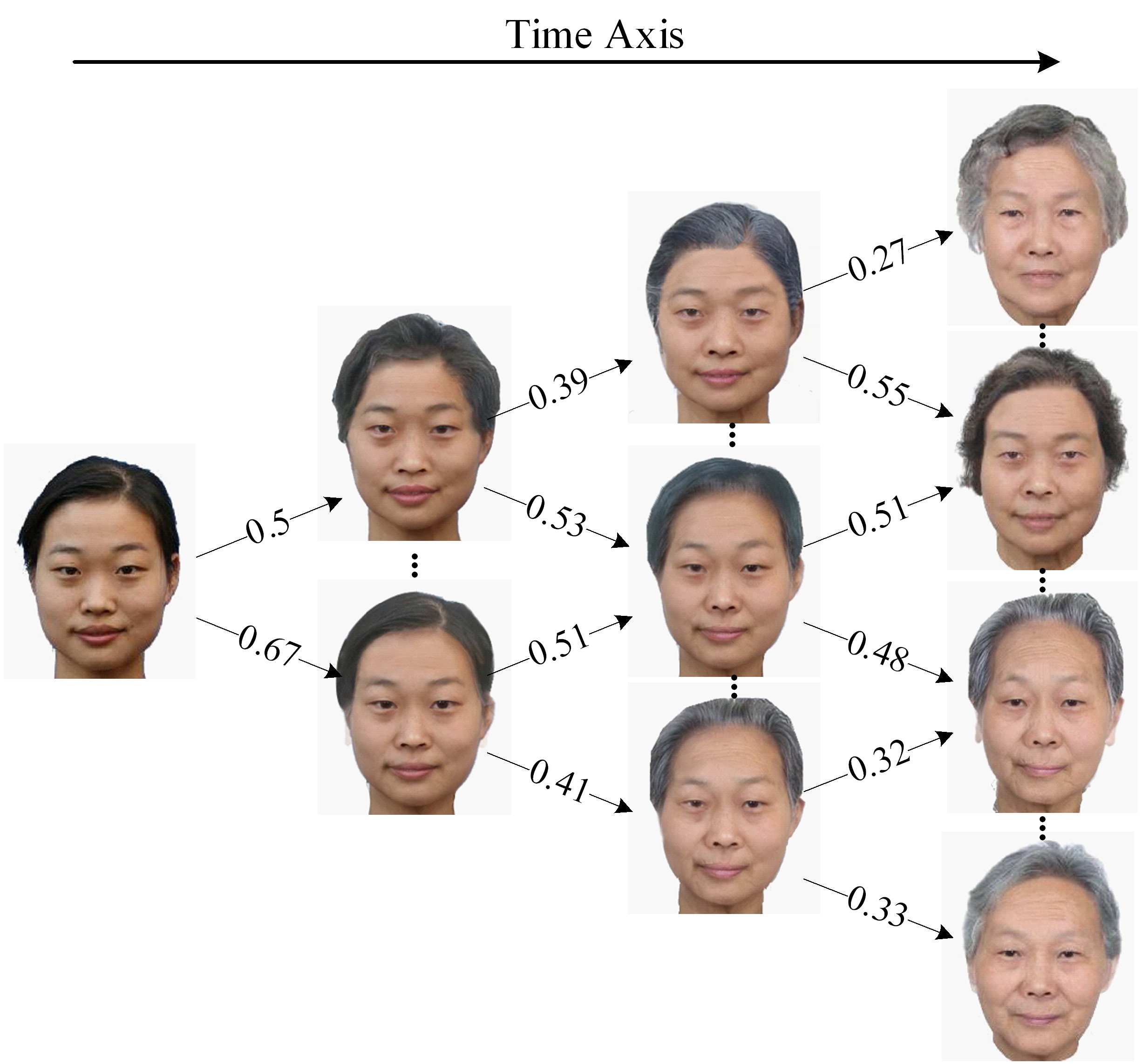When it comes to the average aging process of an Asian, there’s more than meets the eye. Aging isn’t just about numbers on a calendar; it’s a fascinating journey that combines biology, culture, and lifestyle. Whether you’re Asian yourself or simply curious about this topic, we’re here to break it down in a way that’s both informative and easy to digest. So, buckle up because we’re diving deep into the science and stories behind how Asians age!
From the vibrant streets of Tokyo to the serene landscapes of Bali, Asia is a melting pot of traditions, genetics, and modern advancements. These factors play a huge role in how the aging process unfolds for Asians. But here’s the twist—aging isn’t all doom and gloom. In fact, many Asians embrace it with grace, thanks to their unique cultural perspectives and skincare secrets passed down through generations.
Now, you might be wondering, “Why should I care about the average aging process of an Asian?” Well, my friend, understanding this topic can give you insights into longevity, beauty routines, and even diet tips that could benefit anyone, regardless of ethnicity. So, whether you’re looking to slow down the clock or just want to geek out on some cool facts, this article’s got you covered.
Read also:Dave Navarro And Girlfriend The Rockstars Love Life Unveiled
Table of Contents
The Genetic Factor: Nature’s Blueprint
Lifestyle Choices: Habits That Matter
Skincare Routines: The Secret Weapon
Read also:Angus Young Wife Picture The Real Story Behind The Iconic Guitarists Life
Scientific Research on Asian Aging
Environmental Influence on Aging
Comparison with Global Aging Trends
Future Directions in Aging Research
The Genetic Factor: Nature’s Blueprint
Let’s talk about genetics, shall we? Genetics plays a huge role in the average aging process of an Asian. Studies show that Asians tend to have denser skin collagen, which helps maintain elasticity longer. This means fewer wrinkles and firmer skin compared to other ethnic groups. Cool, right?
But here’s the thing: genetics isn’t the only player in this game. While it sets the foundation, external factors like diet, stress, and environment also come into play. So, while Asians may have a genetic edge, it’s the lifestyle choices that truly determine how well they age.
How Genetics Affect Skin Aging
- Higher melanin content reduces sun damage.
- Slower breakdown of elastin fibers.
- Thicker dermis layer for longer-lasting skin integrity.
According to a study published in the Journal of Dermatology, Asian populations exhibit slower signs of aging due to these genetic advantages. However, it’s important to note that not all Asians are created equal—there’s variation even within subgroups like East Asians, South Asians, and Southeast Asians.
Impact of Diet on Aging
Now, let’s shift gears and talk about diet. What you eat has a direct impact on how you age, and Asians have been doing it right for centuries. Traditional Asian diets are rich in antioxidants, omega-3 fatty acids, and anti-inflammatory foods. Think green tea, turmeric, and fermented dishes like kimchi and miso.
Key Foods That Slow Aging:
- Green tea: Packed with catechins, which protect cells from damage.
- Turmeric: Contains curcumin, a powerful anti-inflammatory compound.
- Fermented foods: Boost gut health, which is linked to healthier aging.
A Harvard study found that people who consume a Mediterranean or Asian-inspired diet tend to live longer and healthier lives. So, if you’re looking to hit the longevity jackpot, consider swapping that burger for some sushi or stir-fried veggies.
Lifestyle Choices: Habits That Matter
Beyond genetics and diet, lifestyle choices play a massive role in the average aging process of an Asian. Regular exercise, stress management, and adequate sleep are non-negotiables for maintaining youthfulness. But here’s the kicker—Asians often incorporate mindfulness practices like yoga and tai chi, which further enhance their well-being.
Top Lifestyle Tips for Slowing Aging
- Practice mindfulness meditation for mental clarity.
- Engage in physical activities like walking or swimming.
- Prioritize quality sleep to allow the body to repair itself.
A survey conducted by the World Health Organization (WHO) revealed that Asians who maintain an active lifestyle report fewer age-related health issues. It’s not just about looking good; it’s about feeling good too!
Cultural Perspective on Aging
Culture shapes how Asians view aging, and it’s often seen as a phase of wisdom and respect rather than decline. In many Asian societies, elders are revered and celebrated for their life experiences. This positive attitude toward aging contributes to better mental health and overall well-being.
Key Cultural Practices:
- Family gatherings to honor grandparents.
- Teaching younger generations about heritage and traditions.
- Encouraging intergenerational relationships to foster connection.
Research from the University of California shows that communities with strong cultural ties experience lower rates of depression and anxiety among older adults. It’s a beautiful reminder that aging doesn’t have to be lonely—it can be filled with love and laughter.
Skincare Routines: The Secret Weapon
Let’s not forget about skincare! Asians are famous for their meticulous skincare routines, which often start at a young age. From double cleansing to using sheet masks, these practices help preserve youthful skin well into later years.
Must-Try Skincare Steps
- Double cleansing: Remove makeup and impurities effectively.
- Hydration: Use serums and moisturizers to keep skin plump.
- Sun protection: Apply sunscreen daily to prevent UV damage.
According to dermatologists, Asians who stick to a consistent skincare regimen show fewer signs of aging compared to those who neglect their routines. So, ladies and gentlemen, invest in your skincare—it’s worth every penny!
Mental Health and Aging
Mental health is another critical factor in the average aging process of an Asian. Stress, anxiety, and depression can accelerate aging by damaging cells and weakening the immune system. That’s why many Asians prioritize mental wellness through practices like meditation and therapy.
Mental Health Tips for Aging Gracefully:
- Practice gratitude to shift focus away from negativity.
- Seek professional help if feeling overwhelmed.
- Engage in hobbies that bring joy and fulfillment.
A study published in the Journal of Aging Research highlights the importance of mental resilience in combating age-related decline. By taking care of your mind, you’re also taking care of your body—simple yet powerful.
Scientific Research on Asian Aging
Science backs up what we’ve been saying all along. Numerous studies have explored the unique aspects of Asian aging, shedding light on why Asians tend to age gracefully. One groundbreaking study found that telomeres—protective caps on chromosomes—remain longer in Asians, delaying cellular aging.
Additionally, researchers at Stanford University discovered that certain Asian populations carry genetic markers associated with slower aging rates. These findings not only help us understand aging better but also pave the way for potential anti-aging treatments in the future.
Environmental Influence on Aging
Environment plays a crucial role in how Asians age. Pollution, climate, and exposure to sunlight all impact skin health and overall longevity. However, Asians living in urban areas often counteract these effects with advanced skincare technologies and protective measures.
Environmental Factors to Watch Out For
- Air pollution: Can cause premature aging and skin damage.
- UV exposure: Increases risk of sunspots and wrinkles.
- Climate changes: Dry or humid climates affect skin hydration.
Experts recommend using air purifiers, wearing protective clothing, and staying hydrated to combat environmental stressors. Small steps can make a big difference in how you age!
Comparison with Global Aging Trends
When compared to global aging trends, Asians stand out for their slower aging process. While Western populations often focus on cosmetic fixes like Botox and fillers, Asians prioritize prevention through natural means. This holistic approach yields long-term benefits that go beyond surface-level beauty.
Statistics from the United Nations show that Asian countries have higher life expectancy rates compared to other regions. Factors like diet, lifestyle, and healthcare access contribute to this advantage. It’s a testament to the power of combining tradition with modern science.
Future Directions in Aging Research
As we continue to unravel the mysteries of aging, the future looks promising for Asians and beyond. Researchers are exploring cutting-edge technologies like gene editing and stem cell therapy to further delay aging. These innovations could revolutionize how we approach longevity and quality of life.
In conclusion, the average aging process of an Asian is a fascinating blend of genetics, lifestyle, and culture. By understanding these factors, we can all learn how to age gracefully and healthily. So, what are you waiting for? Start implementing these tips today and see the difference for yourself!
Kesimpulan
To sum it all up, the average aging process of an Asian is influenced by a variety of factors, including genetics, diet, lifestyle, culture, skincare, mental health, scientific research, environment, and global comparisons. Each of these elements plays a vital role in determining how well someone ages. By adopting healthy habits and embracing a positive mindset, you too can age like a pro!
Now, it’s your turn. Share your thoughts in the comments below. Do you have any favorite anti-aging tips or skincare routines? Let’s chat! And don’t forget to share this article with friends and family who might find it helpful. Together, let’s make aging a beautiful journey worth celebrating!


